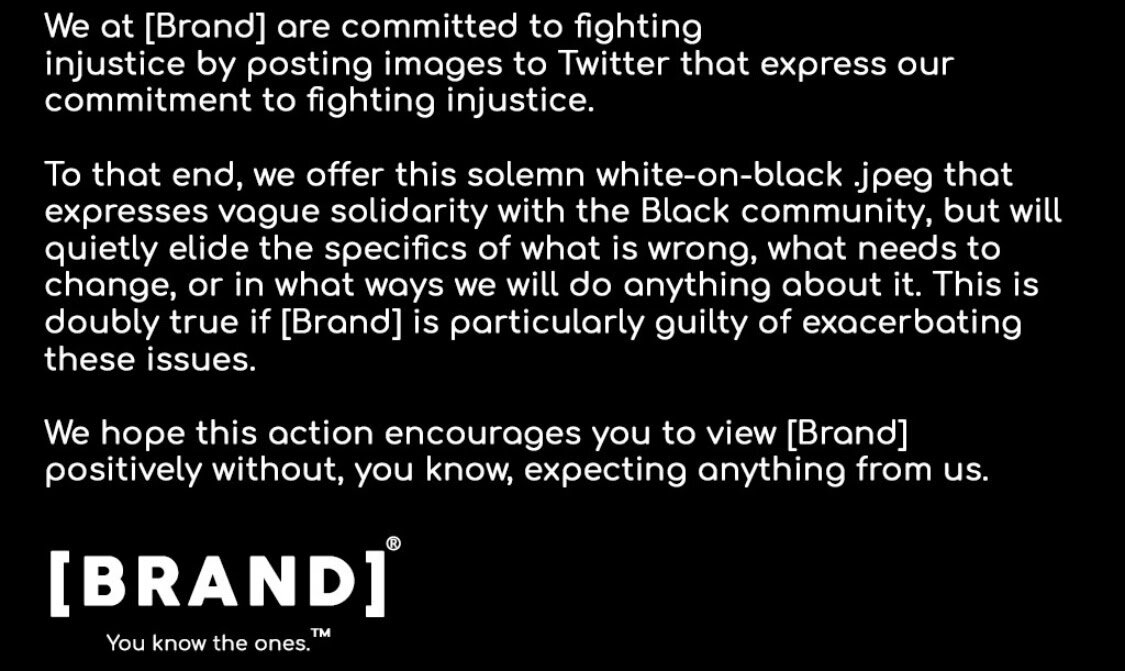
“NO CIGARETTES AND NO POLITICAL PARTIES”: HOW BLACK LIVES MATTER MADE AGENCIES POLITICAL AGAIN
Tess Lowery
30/07/2020
After decades of standing on the sidelines, agencies have finally entered the fight for social justice. Tess Lowery, Content Manager at BBH London, heralds the return of the political advertising agency.
No cigarettes and no political parties. When B, B and H sat down almost 40 years ago, these two types of campaign were off-limits as a matter of principle.
At the risk of stating the blindingly obvious, these were lofty aspirations. John Hegarty ruled tobacco out, as the legend goes, because he believed you should never promote something you would not wish your children to partake of.
The no-political parties agenda came from a different place. The reasoning behind the political embargo, other than to avoid scuffles breaking out in boardrooms, was that Hegarty believed his staff could not be dispassionate about the brief and produce great work.
But that may not have been the only reason. Let’s rewind to 1980s Britain. Thatcher was in power – a figure some would consider the most politically divisive of modern times in the UK. The Black Sheep wasn’t about to get into bed with the milk-snatcher. In fact, it was actually another agency that used its creative superpowers for evil and rocketed Maggie to power.
Today, campaigns are run more by committee than by art directors. Agencies have since reimagined themselves as ‘progressive but non-partisan’. The way they speak is through their clients; their values supposedly aligned. Come hell or high water, they will not be pulled into controversy. As with brands themselves, neutrality is one of many balancing acts in which agencies must engage with the hope of keeping opposing parties sweet. We all know getting off the fence risks alienating clients. (There might be a few raised eyebrows, for instance, if the strat department suddenly threw its weight behind the Church of the Flying Spaghetti Monster.)
Let’s face it though, neutrality on a large scale is a fairy tale spun by able-bodied, cis, hetero, (predominantly) white men to avoid having sheepish conversations about why they’re always at the top of the privilege pile. By remaining neutral you’re supporting the inequities of the status quo. Staying out of it is a passive political act, with active political and social consequences.
Since tensions flared across the world following George Floyd’s murder and new, wider support for the Black Lives Matter movement, that fairytale has continued to unravel. As mentions of #SilenceIsViolence soared (it’s been used over 70k times and searches for it on Google have doubled), it became clear that to be silent was to be complicit.
The #SilenceIsViolence hashtag elegantly cornered brands and agencies alike into a damned if you do, damned if you don’t scenario. Their Instagram feeds became the battleground upon which political persuasions and definitive stances were demanded. No black square on your IG feed? You’re a racist. Black square on your IG feed? Let’s see how many non-white folx are on your board.
The outcome? White people and the corporations they work for started to get woke… or, at the least, pretended to. The sound of white marketers across the world furiously typing ‘how to be an ally’ into Google has been audible and a cookie-cutter response ensued:
We have Generation Z, millenials and Stans (= stalker + fan, see: Eminem’s song, “Stan”) to thank, in part, for this. For this generation, political issues are played out, not in parliament, but on social media. They’re showing up underneath Instagram posts and Twitter threads calling out hollow words with calls to ‘show us your board’. They’re holding brands (and agencies) accountable. It only took a 37-second TikTok video to start a consumer movement loud enough to force Pepsi to rethink the iconography of its pancake brand, Aunt Jemima.
When doing all that furious Googling and unlearning, there are still only few decent examples of brand x anti-racist advertising. One contender is Nike’s tightly framed image of Colin Kaepernick’s face, erstwhile quarterback of the San Francisco 49ers, with the caption: “Believe in something. Even if it means sacrificing everything.” The strapline, alluding to Kaepernick’s decision to kneel for the pre-game national anthem in protest at racial injustice in the US, also applied to the brand itself. The Wall Street Journal reported that Nike stock fell nearly 3%. On Twitter, irate critics posted images of burning Nike shoes. But this wasn’t advertising designed to move product – it was advertising taking a stance.
Agencies, the school teacher delivering lines from behind the curtain, increasingly faced the terrifying realisation that they also had a duty to step on stage and, by extension, be part of the change. The alternative: actively choose to continue to be complicit in stifling that movement. Instead of bland PR statements or posting links to the diversity statistics of their workforce, transparency, openness and accountability should be the comms pillars by which the industry operates here. And the internal response also matters, of course. Hiring policies, statements of intent, training, learning and unlearning; seismic work is required.
The fight for social justice started long ago and adland is late to the party. The industry must take a stance – whatever the cost may be. To bastardise Bill Bernbach’s words: ‘A principle isn’t a principle until it’s cost you a client.’ In fact, one US agency’s short animated film posted on social a few weeks back stated that if ‘Black Lives Matter’ was not a sentiment that you agreed with, they’d “support you finding another agency” – client or employee. Way to blow a hole through the diplomacy dyke. The revolution will need marketing agencies to get political again. So let’s turn “no cigarettes and no political parties” into “No vapes and a duty to use creativity in the fight to dismantle systems of oppression.”



